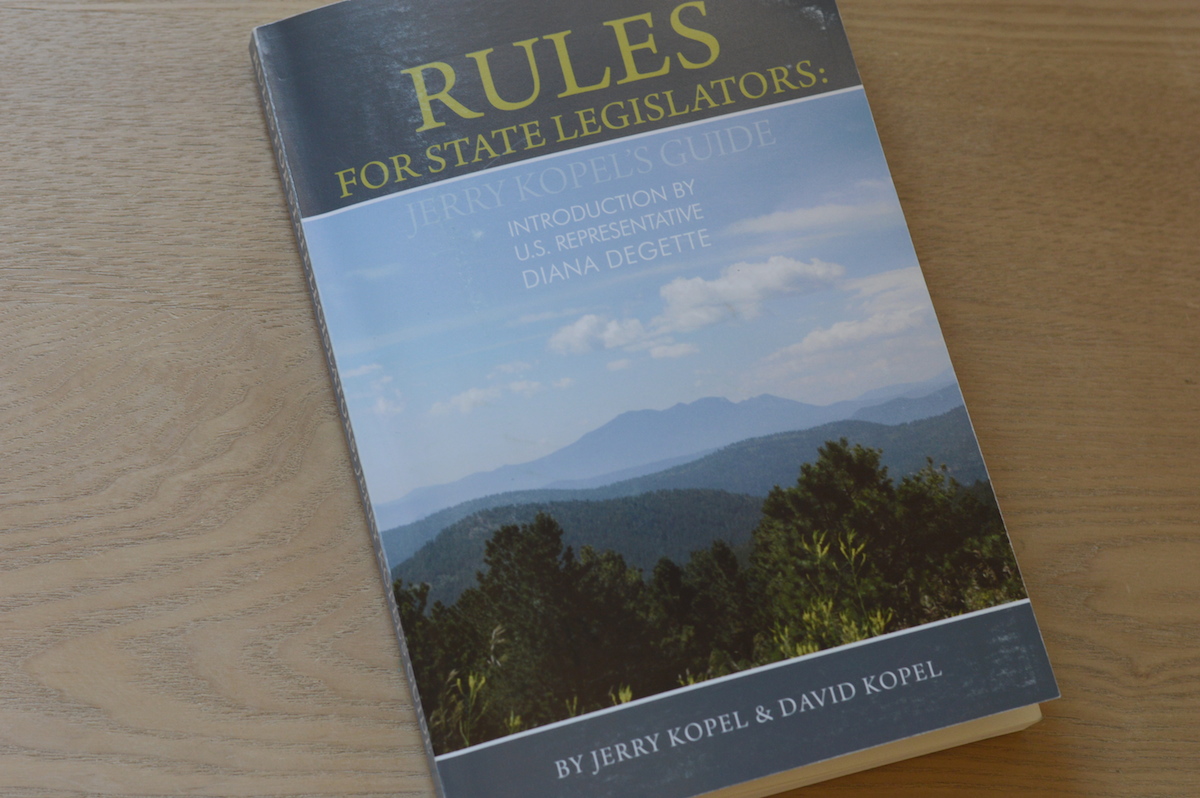The Local newsletter is your free, daily guide to life in Colorado. For locals, by locals.
Like many of you, I’m a transplant to the Centennial State. And while more than eight years of thin-air living means that I know how to pronounce Ouray (Yer-ray) and own more gear for playing in the snow than can comfortably be stored in my house, there’s so much I’ve yet to learn about Colorado. Which is why I’m a sucker for books, articles, and documentaries that help me understand a little more of what I missed before I wised up and moved here.
My latest read? Rules for State Legislators: Jerry Kopel’s Guide. The book collects the writings of Jerry Kopel, a well-known figure in Colorado politics. He was a member of the Colorado House of Representatives for 22 years and spent much of his retirement, before his death in 2012, volunteering as a political advisor and writing a column for The Colorado Statesman.

The book, which was recently published, is a collection of his columns and thoughts on being a better legislator, compiled by his son, David Kopel, research director of the Independence Institute and regular panelist on Colorado Public Television 12’s “Colorado Inside Out,” a show on which I occasionally appear. Kopel’s writing is packed with humor (he titled one section “How I lost my mustache and changed parties”) and information you didn’t know you needed to know (like governors’ birthdays or history on how the state capitol was built).
Many of Kopel’s musings focus on being nice—with your party, the other party, the voters—which seems like common sense. But spend one hour watching a cable news channel tonight and you’ll find plenty of people who’ve forgotten this simple concept. Here, a few more gems from Kopel’s guide:
- Walking through a swarm of lobbyists can feel like entering a bazaar.
- In non-election years, as soon as the session ends, legislators should walk their district. Don’t wait for a campaign year to talk to constituents.
- Kopel writes that press releases are “on par with Germany currency of the late 1920s.” Instead of sending these, focus on saying something important on the floor that will resonate with the media and voters.
- Wisely, Kopel warns against treating legislative sessions as “election replay.” The votes have been counted. The campaigns are done. Focus on the session at hand.
- Even if you lose, write a personal thank you note to everyone who helped your campaign (yes, everyone).
Follow senior editor Natasha Gardner on Twitter, Instagram, or Pinterest.








